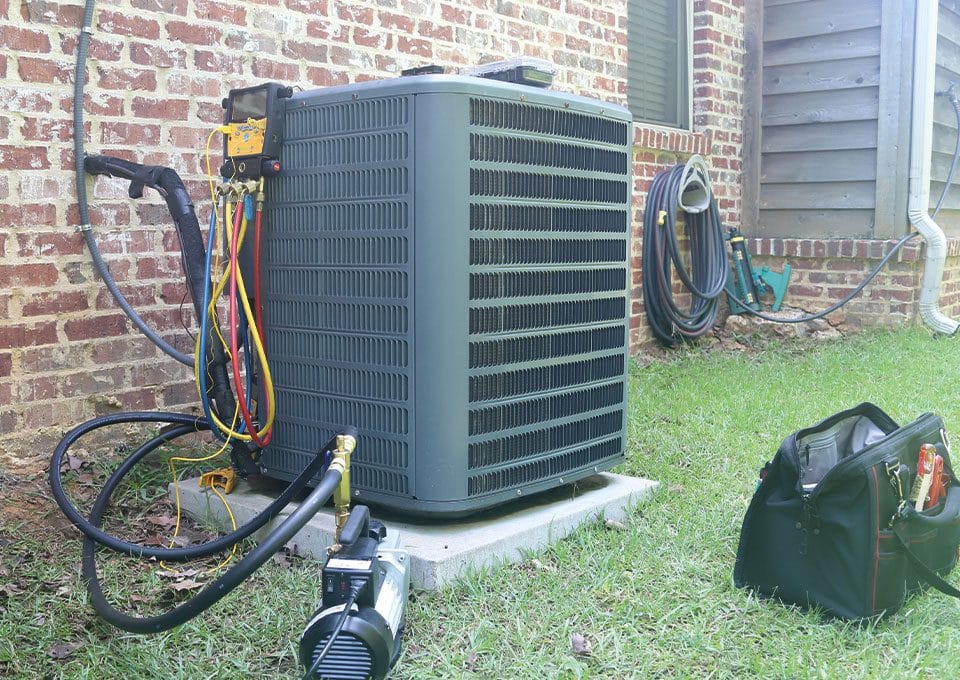The right amount of heat in your Hilton Head home is very important: an oversized furnace can waste a lot of energy and a lot of your money in the process – and an under sized furnace will not be able to heat your home to the necessary level for you and your family to be comfortable.
Sometimes it’s not just a matter of replacing your existing furnace with a furnace that’s exactly the same size because the methods of sizing a furnace appropriately have changed quite a bit over the last several years; it’s very possible that your current Hilton Head furnace may be oversized for the application.
Furnaces today also operate much more efficiently than furnaces from twenty, ten or even five years ago, so that could also contribute to what size unit you would require for your Hilton Head home.
Your Furnace Size depends on many factors
So many different variables can contribute to the size and type of furnace that you will need to adequately heat your Hilton Head home. Things like geographic location; overall square footage, level and type of insulation and the heat loss through old windows, unsealed chimneys and holes where pipes and wires come into your home can all be major contributing factors to the size of heating unit you need to heat your Hilton Head home.
The design of your current heating system and the layout of your Hilton Head home can both be major contributing factors to the size of furnace you need as well. For example, if you have split level home with two operating zones to control your heat and there are only occupants of one zone at any given time (like upstairs bedrooms being occupied at night and remaining empty during the day controlled by one zone), this could mean that you only need a smaller BTU furnace, despite having a higher overall square footage. Having two or more controlling zones can play a very large part in determining exactly what size furnace is needed for a home.
Blindly basing the size of a furnace on any one of these factors alone can be a big mistake. Some contractors who come into your home to bid on the job of replacing your furnace will want to base the size of the new unit on the square footage of your Hilton Head home alone because this is the easiest way to get a general idea of your homes needs. The problem is that the square footage alone will only give a very general idea of what size furnace your home needs and by going this route you’ll often get a furnace that’s either one size too big or one size too small (at least) which will either have you wasting a bunch of money unnecessarily, or not heating your home enough to live comfortably.
Go by the Numbers
In order to get a furnace that’s properly sized, you should have a company come out to do a heat loss calculation on your Hilton Head home. The heat loss calculation is the only true way to determine exactly what size furnace you need to heat your home thoroughly and efficiently – and it’s a quick and simple process.
A qualified Hilton Head heating and air conditioning contractor will come out to your home, and using a variety of equipment will take into account the heat loss caused by all of the aforementioned factors – which will give the true measurement of power necessary from your new furnace.
It’s not just about heating your Hilton Head home efficiently either. The cost savings of having an appropriately sized boiler could be dramatic – different sized furnaces come with different sized price tags. If your Hilton Head heating and air conditioning contractor estimates that you need a 120,000 BTU when in reality a 95,000 BTU furnace would do the job, the initial investment of the job could be several hundred dollars more, causing you to lose a substantial amount of money up front and then to continually lose money with each and every energy bill.
The size of your current furnace and the square footage of your Hilton Head home alone tell you very little when it comes to sizing a new furnace for your home. To get a truly accurate gauge of the size furnace, a home heat loss calculation must be performed by a qualified Hilton Head professional.






